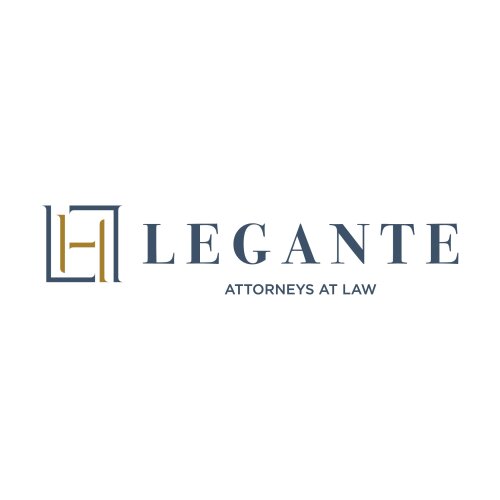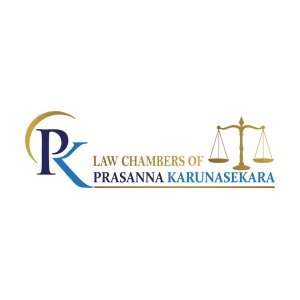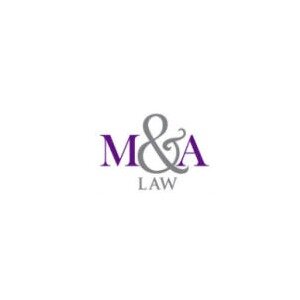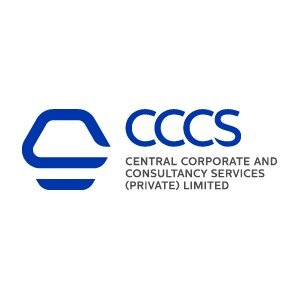Best Antitrust Litigation Lawyers in Sri Lanka
Share your needs with us, get contacted by law firms.
Free. Takes 2 min.
Or refine your search by selecting a city:
List of the best lawyers in Sri Lanka
About Antitrust Litigation Law in Sri Lanka
Antitrust litigation in Sri Lanka deals with laws and legal actions surrounding anti-competitive practices in business and commerce. The primary objective of these laws is to maintain healthy competition in the market, prevent monopolies, and protect the interests of both consumers and other businesses. Sri Lanka has specific statutes and regulatory bodies that address anti-competitive behavior, mergers, acquisitions, and abuse of market dominance. Although antitrust litigation is not as widely publicized as in some other jurisdictions, it is critical for ensuring fairness and transparency in the country's economic landscape.
Why You May Need a Lawyer
Legal assistance in antitrust matters is essential if you or your business is facing issues related to unfair competition or market practices. Typical situations where you may need a lawyer include:
- Your company is accused of price fixing, collusion, or cartel formation
- You suspect a competitor is engaging in monopolistic or exclusionary tactics
- You intend to merge with or acquire another business and need advice on regulatory compliance
- You are a consumer or competitor harmed by anti-competitive conduct
- You require representation before regulatory authorities or courts concerning antitrust allegations
- You need legal strategies to defend against or initiate antitrust claims
- Your business practices are being reviewed during a government investigation
Antitrust lawyers can help navigate complex legal requirements, represent clients in court, and liaise with regulatory bodies for favorable outcomes.
Local Laws Overview
Antitrust regulation in Sri Lanka is primarily governed by the Consumer Affairs Authority Act No 9 of 2003 and the constitutionally empowered Consumer Affairs Authority (CAA). Key aspects relevant to antitrust litigation include:
- Anti-competitive Agreements: The CAA prohibits agreements that have the object or effect of preventing, restricting, or distorting competition in any market in Sri Lanka. This includes price fixing, bid-rigging, and collective boycotts.
- Abuse of Dominance: A business that holds a dominant position in a market must not exploit that position to the detriment of competitors or consumers. Abuse can include predatory pricing, exclusive dealing, or refusal to supply.
- Mergers and Acquisitions: Large mergers or acquisitions may require prior clearance to ensure they do not result in substantial lessening of competition.
- Consumer Protection: While antitrust focuses on competition, consumer protection provisions often overlap, especially regarding unfair trade practices.
- Enforcement: The CAA is responsible for investigating breaches, which can result in penalties, injunctions, and sometimes imprisonment for severe violations.
It is important to note that antitrust laws in Sri Lanka can be nuanced, with evolving judicial interpretations and regulatory guidelines.
Frequently Asked Questions
What is antitrust litigation?
Antitrust litigation involves legal proceedings related to violations of competition laws, such as illegal agreements between businesses, abuse of market dominance, and anti-competitive mergers or acquisitions.
Who enforces antitrust laws in Sri Lanka?
The Consumer Affairs Authority is the main body responsible for investigating and enforcing antitrust laws in Sri Lanka.
Can a business be investigated for antitrust violations without a formal complaint?
Yes, the Consumer Affairs Authority can initiate investigations based on its own observations or information received from any source, including public complaints.
What types of agreements are considered illegal under antitrust law?
Agreements that restrict competition, such as those setting prices, dividing markets, or rigging bids, are generally prohibited and can form the basis of litigation.
Is it illegal for a business to be dominant in the market?
No, being dominant is not illegal. However, abusing a dominant position to limit competition or exploit consumers is prohibited.
Do I need government approval for mergers or acquisitions?
If the transaction is of a significant size or market impact, it may require notification and approval from the Consumer Affairs Authority to ensure it does not harm competition.
What penalties can result from antitrust violations?
Penalties range from fines and orders to cease harmful activities, to injunctions and, in severe cases, imprisonment for responsible individuals.
Can individuals or businesses file lawsuits for antitrust violations?
Yes, affected parties may initiate civil action in court or file complaints with the Consumer Affairs Authority seeking remedies for damages caused by anti-competitive conduct.
Are international businesses subject to Sri Lankan antitrust laws?
Yes, any business activity that affects markets in Sri Lanka, even by foreign entities, falls within the scope of local antitrust laws.
How long does an antitrust investigation take?
The duration varies depending on case complexity. Some investigations may be resolved within months, while others can take longer, particularly if they proceed to litigation.
Additional Resources
For further assistance and information about antitrust litigation in Sri Lanka, consider consulting these resources:
- Consumer Affairs Authority (CAA): The regulatory body handling competition and consumer protection issues
- Ministry of Trade, Commerce and Food Security: Provides updates on commercial regulations and laws
- Sri Lanka Bar Association: Offers directories to qualified lawyers specializing in antitrust and competition law
- Legal Aid Commission of Sri Lanka: Assists individuals who need legal support but cannot afford it
Next Steps
If you believe you are involved in or affected by an issue related to antitrust law in Sri Lanka, consider the following steps:
- Gather all relevant documentation and information related to the business activity or transaction in question
- Consult an experienced lawyer specializing in competition or antitrust law for an initial assessment
- If appropriate, file a complaint or request for investigation with the Consumer Affairs Authority
- Be prepared to cooperate with investigative authorities by providing evidence or attending hearings if necessary
- Stay informed on your rights and responsibilities throughout the legal process
Seeking professional legal advice early can help protect your interests and ensure that you comply with all applicable laws and regulations in Sri Lanka.
Lawzana helps you find the best lawyers and law firms in Sri Lanka through a curated and pre-screened list of qualified legal professionals. Our platform offers rankings and detailed profiles of attorneys and law firms, allowing you to compare based on practice areas, including Antitrust Litigation, experience, and client feedback.
Each profile includes a description of the firm's areas of practice, client reviews, team members and partners, year of establishment, spoken languages, office locations, contact information, social media presence, and any published articles or resources. Most firms on our platform speak English and are experienced in both local and international legal matters.
Get a quote from top-rated law firms in Sri Lanka — quickly, securely, and without unnecessary hassle.
Disclaimer:
The information provided on this page is for general informational purposes only and does not constitute legal advice. While we strive to ensure the accuracy and relevance of the content, legal information may change over time, and interpretations of the law can vary. You should always consult with a qualified legal professional for advice specific to your situation.
We disclaim all liability for actions taken or not taken based on the content of this page. If you believe any information is incorrect or outdated, please contact us, and we will review and update it where appropriate.
Browse antitrust litigation law firms by city in Sri Lanka
Refine your search by selecting a city.

















